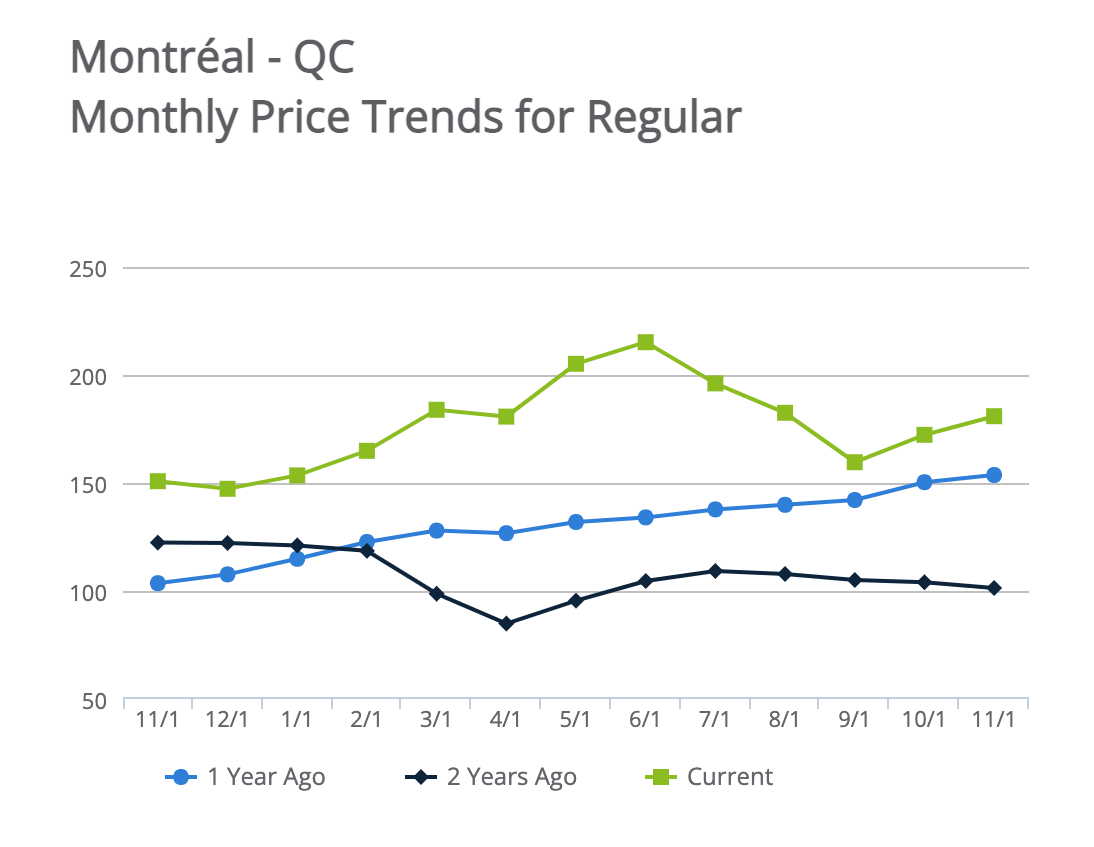Global economic recoveries, environmental policies, and market dynamics make the outlook for 2024 gas prices in Canada one of uncertainty and potential strain on personal budgets, especially during the summer.
The tail end of 2023 saw retail petroleum prices in Canada drop to their lowest levels for the year in December, marking a 24-month low. The decline was driven by record North American crude oil production, with the U.S. reaching a production high of 13.3 million barrels per day (BBL/d) in December and Alberta producing 4.2 million BBL/d in November.
Strong production contributed to a build-up of inventories, reducing the gap between the cost of crude oil and the selling price of gasoline which drove pump prices down, according to the latest "Report of Petroleum Pricing in Canada" by Kalibrate.
"As a result of the record production numbers, US oil output is mitigating the effects of the Russian war, reducing oil prices worldwide even as OPEC+ cuts production," Gas Buddy expert Patrick de Haan said in a recent tweet.
However, the Kalibrate report suggests that relief may be short-lived in 2024. Despite a stable start to the year — bolstered by high crude oil production in North America and the anticipated spring completion of the Trans Mountain Pipeline expansion that should offer more export opportunities — rising tensions in the Middle East pose a risk to crude oil supplies. They could potentially trigger sudden price spikes, affecting retail petroleum costs.
Seasonal demand changes and tax adjustments could also drive gas prices up in 2024. "Gasoline prices in Canada will likely remain flat for the winter months as crude prices are expected to differ little from current levels," the report highlights. "In the spring, a seasonal rise in demand will likely lead to expanding gasoline refining margins and higher wholesale gasoline prices, along with the switch-over to [costlier] summer-blended fuel."
Gas prices usually go down in the fall due to a switch to cheaper winter gasoline and lower demand. They often go up in the spring for the opposite reason, tweeted de Haan.
Gasoline prices are forecasted to peak in May and finish the year nearly eight cents per litre higher than at the end of 2023. The projection would mean a growing burden of fuel costs for Canadian drivers, potentially impacting commuting habits and overall household budgets.
In light of these challenges, alternative transportation options — public transit, cycling, or car-sharing — might be the easiest way to mitigate the financial impact and maneuver the terrain of 2024's shifting fuel market.
- Here’s How Much Montrealers Waste On Gas When Sitting In Traffic ›
- 9 Of The Most-Anticipated Montreal Construction Projects In 2024 ›
- Food Prices In Canada Are Expected To Rise Next Year — Here's What'll Cost You More ›
- Montreal Car Owners Are Paying More Than Twice On Average What They Did 5 Years Ago - MTL Blog ›
- Couche-Tard is giving away a discount on gas prices in Quebec ahead of the long weekend - MTL Blog ›
 A graph comparing the annual average gas prices in Canada and Montreal.Gas Buddy
A graph comparing the annual average gas prices in Canada and Montreal.Gas Buddy The one-month average price of gas in Montreal versus Canada.Courtesy of Gas Buddy.
The one-month average price of gas in Montreal versus Canada.Courtesy of Gas Buddy. Monthly average gas prices in Montreal.
Monthly average gas prices in Montreal.